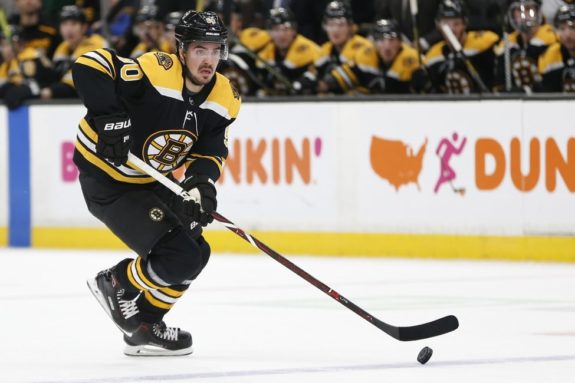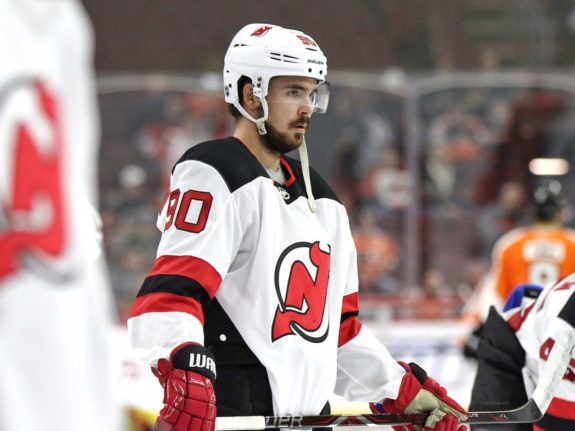Marcus Johansson will arguably be one of the more interesting unrestricted free agents on the market come July 1. At just 28 years old, the 6-foot-1, 205-pound Swede can produce at all three forward positions and thrive in a second or third-line role if he can remain healthy and consistently stay in the lineup.
Right before he was shipped up to the Boston Bruins at the 11th hour of the trade deadline, Johansson was playing some of his best hockey with the New Jersey Devils, recording 27 points (12 goals, 15 assists) in 48 games for the Devils in 2018-19
Since becoming a member of the Bruins, Johansson has been streaky at best. In 10 regular-season games down the stretch, he tallied just three points. However, as the postseason continues to roll on, the future unrestricted free agent is starting to find his game. In eight postseason games to date, he has recorded four points, including the game-winning goal in Game 7 to help lift the Bruins passed the Toronto Maple Leafs in the first round.

Reunions after trades rarely go down in the National Hockey League, but it’s at least worth exploring Johansson and a potential return to the Devils.
The Pros of Signing Johansson:
Johansson is a proven depth scorer. He has scored 20 or more goals two times and recorded 30 or more assists three times in his nine-year NHL career as a member of the Washington Capitals, Devils and Bruins. He’s also capable of logging top-line minutes, averaging more than 16 minutes of ice time in six of his nine NHL seasons.
On top of that, Johansson can be a key contributor when playing with the right players. When the Devils originally acquired Johansson in 2017, he was coming off a career season in which he tallied 24 goals and 54 points in 82 games playing alongside Alex Ovechkin. It’s hard to imagine Johansson’s stat line not increasing if he’s paired with a healthy Taylor Hall and/or Jack Hughes over the course of a full season.
The Con’s of Signing Johansson:
Injuries. Two untimely concussions and an ankle bruise limited Johansson to just 29 regular-season games in 2017-18, and an upper-body injury during the 2018-19 season also caused him to miss 24 regular-season games. Durability wasn’t a major concern early on in his career, but injuries continue to hover over him like a black cloud.

The second issue is age. Johansson will turn 29 at the beginning of next season, meaning he is starting to exit his prime. Like most NHL veterans, he will be looking for a large contract to secure his future. While the Devils have more than enough cap space to fit him in comfortably, they also need to factor in the eventual re-signing of Hall and Jesper Bratt to new contracts after next season.
The Devils stressed adding more talent in the offseason, and while Johansson can certainly provide a boost in that category, a return to New Jersey is far from guaranteed.